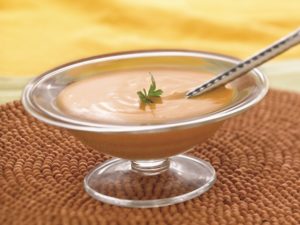Vegetarian Primer for the Kidney Diet
Are you familiar with the term, “Plant-Based Diet”? Or maybe you’ve heard of the “Vegetarian Diet”? Have you struggled with combining a vegetarian diet with your dialysis diet?
Individuals choose a plant-based (aka vegetarian) diet for a variety of personal, philosophical, health or religious reasons. The good thing about plant-based diets is that there is a strong positive connection between vegetarian diets and good health. Heart disease, high blood pressure, high cholesterol (high LDLs), obesity, some forms of cancer, type 2 diabetes and kidney disease develop less frequently in vegetarians versus non-vegetarians (1, 2). It is important to remember, however, you can eat a plant-based diet and still make a lot of very unhealthy choices.
Essential Nutrients
It is not a great idea for a person to go plant-based without making a plan to ensure they eat all of the essential nutrients required. This is especially true for anyone with a chronic disease or on dialysis. A few of the nutrients that that may be a challenge to include are protein, vitamin B12, vitamin D, iron and zinc. You may not hear much about these vitamins and minerals, but they play an important role in keeping the body healthy and strong.
Types of Vegetarians
So, let start with a few vegetarian diet basics:
- Ovo-Vegetarian: Plant-based diet with eggs (no meat, no dairy)
- Lacto-Ovo –Vegetarian: This is the most common plant-based diet which includes eggs and dairy (no meat)
- Vegans: Plant-based diet (no meat, no dairy, no eggs)
- Pescatarian: Plant-based diet with eggs, dairy and fish
- Semi-Vegetarian: Plant-based diet but may eat beef, poultry once or twice a week
Getting Enough Protein
You may be aware that most dialysis patients require a high protein diet. It can be hard for people on dialysis to get enough protein even when they eat animal protein, so you can imagine it takes even more effort for those who are vegetarian.
So, how do people on dialysis who want to be vegetarian make sure they get enough protein for a person their age and size?
First, it is important they work with their dialysis dietitian and let them know they are eating a plant-based diet. Some of the foods that are normally avoided can be included since the patient who is vegetarian is not getting phosphorus from meat products. Peanut butter is a great example. Individuals who eat meat and have a high phosphorus level may be encouraged to avoid peanut butter. Individuals who do not eat meat products may be encouraged to have peanut butter daily to ensure adequate protein intake. The dietitian can assist individuals to ensure they are getting the protein and other nutrients required.
Lower Protein and Chronic Kidney Disease
If you have advanced stage of chronic kidney disease (CKD) you may be limiting your protein intake. This limits waste build-up and may help slow progression of kidney failure. A vegetarian diet can provide the essential amino acids needed with careful planning. Be sure you are working with a registered dietitian. See this video about a kidney-friendly diet for those with CKD:
Vegetarian Protein Sources
Second, it is important to know the many sources of non-animal based protein. Here is a brief list:
- Dairy: cheese, milk, Greek yogurt, cottage cheese, quark
- Meat alternatives: soy, tofu, tempeh, edamame
- Soy products: veggie burgers, veggie crumbles, meatless items made to replace chicken, deli meats, sausages (may be high in sodium)
- Beans and Peas: soybeans, black, garbanzo, pinto, kidney, lentils, black-eyed peas
- Grains: quinoa, Special K® Protein cereal
- Eggs, nuts, nut butters, seeds, almond milk, rice milk, soy milk
For a vegetarian meal try one of these DaVita recipes:

Try these sauce recipes to flavor vegetable, legume and grain dishes:

It is important to work with your dietitian to ensure you are eating adequate protein but also getting many of the other nutrients required daily. Finding the right balance of potassium and phosphorus is also important.
No matter what type of eating plan you follow, your dialysis dietitian can help you adjust it to meet all of your nutritional needs!
References:
- “Association of Changes in Diet Quality with Total and Cause-Specific Mortality” Mercedes Sotos-Prieto, Ph.D., et al. July 13, 2017, N Engl J Med 2017; 377:143-153, DOI: 10.1056/NEJMoa1613502
- http://www.pcrm.org/health/diets/vegdiets/vegetarian-foods-powerful-for-health Accessed Feb 2018.
This article is for informational purposes only and is not a substitute for medical advice or treatment. Consult your physician and dietitian regarding your specific diagnosis, treatment, diet and health questions.
Additional Kidney Diet Resources
Visit DaVita.com and explore these diet and nutrition resources:
DaVita Kidney-Friendly Recipes
This article is for informational purposes only and is not a substitute for medical advice or treatment. Consult your physician and dietitian regarding your specific diagnosis, treatment, diet and health questions.

Recent Comments